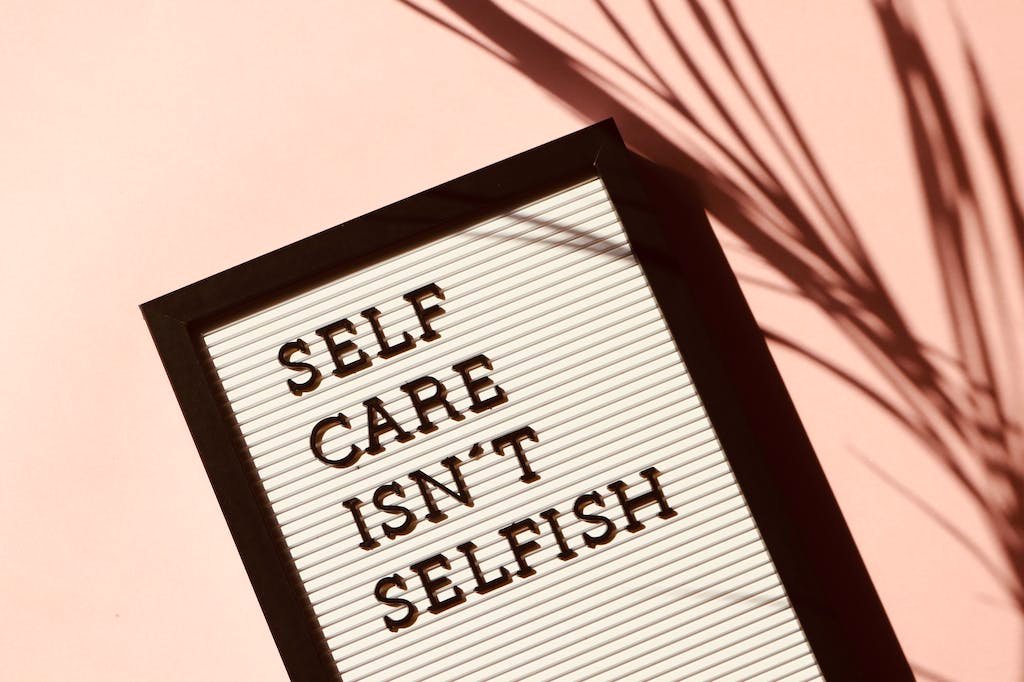The Importance of Self-Care for Mental and Physical Health
In our fast-paced world, it’s easy to overlook the crucial role of self-care for mental and physical health. Establishing a self-care routine can enhance our quality of life, emotional well-being, and overall health. It’s not just about indulgence; it’s about taking the necessary steps to maintain and improve our well-being.

The Critical Role of Self-Care for Mental and Physical Health
When it comes to health and wellness, self-care plays an essential part. It is not just a feel-good term but a vital factor that influences our emotional, physical, and mental health. Incorporating self-care activities into our daily routine is an intentional practice aimed at nurturing our body, mind, and soul.
Regular self-care activities help in managing daily stressors, enhancing self-esteem, and rejuvenating our energy levels, which contributes to a more positive outlook. They serve as the fuel that allows us to function optimally, enabling us to tackle challenges with more resilience and clarity.

Mental health is significantly affected by how well we take care of ourselves. Practicing self-care can help alleviate symptoms related to mental health disorders, including anxiety and depression. It provides us with tools to handle stress effectively and offers a pathway to healing and recovery. Engaging in activities that relax and rejuvenate us can foster a positive mental state and improve emotional well-being.
On the physical side, self-care can help maintain a robust immune system, encourage better sleep quality, and assist with weight management. It encompasses a range of activities such as regular exercise, maintaining a nutritious diet, ensuring adequate sleep, and taking necessary preventative measures like regular health check-ups. These practices not only contribute to better physical health but also provide the stamina and vitality required to lead an active, fulfilling life.
In essence, self-care isn’t just an act of preserving or improving health; it’s a path to a balanced and rewarding life. It’s a commitment to ourselves that signifies that our health and well-being are a priority. It’s the key to managing life’s challenges with resilience, and a means to connect with our true selves on a deeper level.
How Self-Care Prevents Mental Health Problems
The proactive nature of self-care practices serves as an invaluable tool in the prevention of mental health issues. Emotional self-care, a crucial component of these practices, provides us with an avenue to connect with, process, and understand our vast spectrum of emotions.
Engaging in regular self-care activities creates opportunities for self-reflection and emotional check-ins. It empowers us to acknowledge and address our feelings, rather than suppressing or overlooking potential areas of mental or emotional distress. This ongoing self-awareness is vital in catching early signs of mental health concerns.

Implementing a self-care routine is akin to setting up a mental health safety net. By routinely caring for our emotional needs, we can better navigate stressors and emotional ups and downs, preventing these challenges from escalating into severe mental health issues.
This proactive approach enables us to cultivate emotional resilience and equip ourselves with coping mechanisms to handle life’s pressures effectively. Through self-care, we foster a healthy relationship with ourselves, bolstering our emotional well-being and fortifying our mental health defenses. This process is an act of self-love and self-preservation, as we are not only taking care of our present emotional state but also looking out for our future mental health.
Moreover, many self-care activities, like meditation or journaling, can provide therapeutic benefits, offering an outlet for emotional expression and stress relief. These activities can also enhance self-awareness and mindfulness, making us more attuned to our emotional states and more capable of managing them proactively.
In sum, self-care doesn’t merely serve as a coping tool for existing mental health problems but plays a significant preventative role. By regularly engaging in self-care practices, we can enhance our emotional well-being and resilience, reducing our vulnerability to mental health issues.
Benefits of Practicing Self-Care
Committing to a consistent self-care routine brings a plethora of benefits that can remarkably impact different aspects of our lives. One of the most immediate rewards of self-care is a notable boost in mood and energy levels. Activities like regular exercise or taking a relaxing bath can refresh your mind and invigorate your body, leaving you feeling rejuvenated.
A well-rounded self-care routine can also lead to improved resilience against stress. When you prioritize activities that relax and recharge you, you’re better equipped to handle life’s curveballs. You build up a reservoir of calm and positivity that can help protect you from the damaging effects of stress, reducing the risk of conditions like anxiety and depression.

Self-care can also contribute significantly to enhancing your physical health. Regular physical activity and a nutritious diet can strengthen your immune system, making you less prone to illnesses and helping you maintain your energy levels throughout the day. Additionally, these practices can also help you manage your weight, maintain your cardiovascular health, and improve your overall body strength and endurance.
Another crucial benefit of self-care is improved self-awareness. Regular self-care activities provide an opportunity to tune into your needs, emotions, and reactions. This heightened self-awareness can help you understand your emotions better, recognize when you’re feeling stressed or overwhelmed, and respond effectively.
Finally, self-care can foster better relationships. By taking care of your own emotional and physical needs, you’re likely to feel happier and more content, which can spill over into your interactions with others. When you’re in a good place emotionally and physically, you can engage more fully with others and bring your best self to your relationships.
In essence, the benefits of self-care extend far beyond immediate relaxation or stress relief. Its consistent practice can enhance your mood, fortify your physical health, improve emotional resilience, and enrich your relationships. These benefits underscore the importance of self-care as a vital part of leading a balanced and fulfilling life.
Improving Physical Health Through Self-Care
A cornerstone of self-care is nurturing our physical well-being. Physical self-care encompasses activities that cater to our body’s needs and help us maintain an optimal state of health. It revolves around providing the necessary fuel, care, and rest to our bodies to function effectively and combat potential health concerns.
Adhering to a balanced, nutritious diet is an integral part of physical self-care. By fueling our bodies with wholesome foods packed with necessary vitamins, minerals, and nutrients, we are providing our bodies with the building blocks for good health. Eating nutritious meals regularly can enhance our overall health and energy levels. This, in turn, can fortify our immune system, keep our weight in check, and enhance our vitality and endurance.

Exercise also plays a crucial role in physical self-care. Regular physical activity, whether it’s a brisk walk, a gym session, or a yoga class, helps maintain our cardiovascular health, strengthens our muscles, improves flexibility, and boosts our mood. Regular exercise not only assists in weight management but also aids in stress relief and can serve as a protective barrier against anxiety and depression.
Adequate rest and sleep, too, are essential to our physical health. When we allow our bodies to rest, we enable them to repair, replenish, and rejuvenate. Quality sleep can improve cognitive function, mood, and energy levels while reducing the risk of chronic health problems.
Aside from these, physical self-care also involves regular health check-ups and screenings. These can help detect potential health issues early on, allowing for timely intervention and treatment. Also, it’s important to listen to our bodies and respect their signals. If we feel tired, we should rest; if we feel unwell, we should seek medical attention.
In essence, by practicing physical self-care, we are investing in our health, preventing potential physical health problems, and enhancing our quality of life. Physical self-care is an ongoing commitment to our health and wellness, contributing to a vibrant, active life.
Different Forms of Self-Care
Self-care can be multifaceted, embodying several different aspects that cater to our physical, emotional, and spiritual needs. Each form of self-care offers unique benefits and collectively, they contribute to holistic well-being.

Physical self-care, as the name suggests, involves habits and activities that enhance your physical health. These practices are directly related to maintaining a healthy body, including following a nutritious diet, regular exercise, adequate rest, and attending to medical needs. This form of self-care is about nurturing your body, ensuring it receives the necessary care and attention it needs to function optimally.
Emotional self-care, on the other hand, pertains to activities that help manage and improve your emotional health. This includes managing stress effectively, seeking professional help like therapy when needed, and nurturing a positive relationship with yourself. This form of self-care emphasizes recognizing and respecting your feelings and emotions, and creating a space for you to express them freely.
Lastly, spiritual self-care focuses on practices that nurture your spirit and help you feel peaceful. This doesn’t necessarily have to involve religious practices, though it can if that is a part of your belief system. Instead, it’s about activities that connect you with your inner self and the world around you, helping you feel more grounded and at peace. This could involve meditation, yoga, spending quiet time in nature, journaling, or any practice that feeds your soul and brings you tranquility.
Each form of self-care is essential in its own way, and it’s important to create a self-care routine that encompasses all these aspects. This balanced approach ensures that you are caring for your mind, body, and spirit, contributing to a more holistic and balanced state of well-being.
How to Practice Self-Care
Implementing self-care into your lifestyle involves developing a personalized plan that reflects your needs and preferences. This plan should include activities that not only bring you joy but also contribute to your overall well-being. It’s crucial to remember that self-care is unique to every individual – what benefits one person may not hold the same value for another.

Begin with manageable adjustments such as integrating more nutritious foods like fruits and vegetables into your meals, allocating brief periods during your workday to stretch or meditate, or adjusting your bedtime to ensure you’re receiving adequate rest. As these changes become routine, you can gradually incorporate more comprehensive self-care activities into your daily regimen.
Prioritizing your mental and physical health is not a lavish indulgence, but a fundamental necessity. Self-care is an integral component of leading a balanced, wholesome life. Always remember, the most vital relationship you maintain is with yourself – make sure to nurture it with kindness, patience, and respect.






